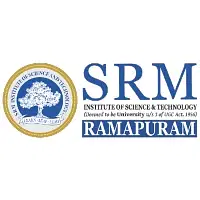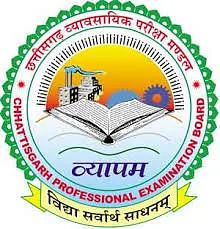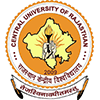The benefits of the NEST exam is that students who clear the exam can study at two prominent institutes in India for undergraduate degrees in Science and Technology at NISER and UM-DAE CBS
Table of Contents
The benefits of NEST exam include scholarship support, admission to prestigious institutions, interdisciplinary focus and flexibility and a few more. Moreover, NEST is conducted jointly by the National Institute of Science Education and Research (NISER), Bhubaneswar, and the University of Mumbai - Department of Atomic Energy Centre for Excellence in Basic Sciences (UM-DAE DEBS), Mumbai.
Therefore, the question of the benefit of the NEST exam 2026 often clouds the mind of the candidates. Further, the National Entrance Screening Test (NEST) invites candidates for a five-year integrated M.Sc program. The M.Sc program is organized for four subjects; mathematics, physics, chemistry, and biology.
Top 5 Benefits of NEST Exam
The bare minimum requirement is passing class 12 with a percentage of 60% in aggregate for aspirants from unreserved categories and 55% for aspirants from reserved categories for applying. Some of the added benefits are as follows:
1. Gateway to Careers in Science and Research:
- NEST graduates often secure opportunities for higher studies in prestigious global and Indian institutions like IISc, IITs, and international universities.
- Students are also well-prepared for careers in R&D sectors, government organisations, and academia.
2. Scholarships and Financial Support
- NEST-qualified students are eligible for the INSPIRE Scholarship, provided by the Department of Science and Technology (DST), Government of India.
- The scholarship amounts to INR 60,000 per year (approx) and an annual contingency grant for academic and research purposes.
3. Admission to Prestigious Institutions
- Clearing NEST paves the way for admission to NISER Bhubaneswar and UM-DAE CEBS, institutions that focus on high-quality education in basic sciences.
- Both institutions offer integrated 5-year MSc programs, designed to provide a robust foundation in science and prepare students for research-oriented careers.
4. Interdisciplinary Focus and Flexibility
- NISER and UM-DAE CEBS promote interdisciplinary research, enabling students to explore diverse areas of science rather than being restricted to a single discipline.
- This approach prepares students to address real-world scientific challenges.
5. Research Exposure and Career Development
- NEST offers students a direct pathway into the research ecosystem, with opportunities for internships, collaborations, and conferences.
- Students get hands-on experience with state-of-the-art equipment and emerging technologies.
Eligibility Criteria for NEST Exam
For the NEST Exam 2026, it is important to understand the NEST eligibility criteria 2026 listed below.
- Academic Qualifications
- Class 12 Qualification: Candidates must have passed Class 12 or equivalent examination in science stream in the year 2023 or 2024 or must be appearing in 2026.
- Subjects required: Physics, Chemistry, Mathematics/Biology.
- Qualifying Board: The Class 12 examination must be conducted by a recognized board in India (CBSE, ICSE, State Boards, or equivalent).
- Age Limit
- Candidates must have been born on or after August 1, 2005.
- There is a relaxation of 5 years for candidates belonging to SC/ST/Divyangjan (PwD) categories.
- Reservation Policy
- Reservation of Seats is applicable as per Government of India norms:
- Scheduled Castes (SC): 15%
- Scheduled Tribes (ST): 7.5%
- OBC-NCL: 27%
- Persons with Disabilities (PwD): 5% horizontal reservation
- Minimum Marks Requirement
- Candidates must have secured at least 60% aggregate marks in their Class 12 examination.
- For candidates belonging to the SC/ST/Divyangjan (PwD) categories, the minimum required aggregate is 55%.
NEST Exam Pattern
NEST is arranged online (computer-based) and the questions are anticipated to be somewhere around moderate to tough. Nevertheless, the questions are available in both English and Hindi versions.
Students can check the benefits of NEST exam below. Before appearing for any examination, the primary step is to learn about the exam pattern in detail. Students can have an overview of the NEST exam pattern 2026 in the table given below.
| Particulars | Details |
| Full Form of the Exam | National Entrance Screening Test |
| Exam Mode | Online |
| Total Number of Papers | 5 |
| Subjects |
|
| Type of Questions | MCQs |
| Total Marks | 180 |
| Total Time | 210 Minutes |
NEST Exam Marks Distribution - Section-Wise
The exam is primarily distributed among five sections, and so is the marking scheme. The elaborate distribution of marks is mentioned below. Further, knowing the marking pattern is measured among the benefits of the NEST exam.
Moreover, there is no negative marking for section A; the rest of the sections have negative markings.
| Sections | Total Marks (Each section) |
| Section 1 - General Ability | 30 |
| Section 2 - Physics | 50 |
| Section 3 - Chemistry | 50 |
| Section 4 - Mathematics | 50 |
| Section 5 - Biology | 50 |
| Total | 230 |
Science Colleges Accepting NEST in India
India is home to numerous science colleges. There are three Science Colleges that accept NEST scores in India. These three colleges can be divided into two categories: public and government-owned.
1. Visva Bharati University
Rabindranath Tagore founded Visva Bharati University. Visva Bharati is a central research university and national-level institution in West Bengal, India. It is UGC-approved and NAAC-accredited (A). NIRF 2023 has ranked Visva Bharati University as 97th in the University category.
Visva Bharati University has eight institutes organized into 40 departments that offer over 150 undergraduate, graduate, doctoral, and diploma programs.
| Particulars | Details |
| Establishment Year | 1951 |
| Accreditations by | NAAC with ‘A’ Grade |
| Recognized by | UGC |
| Number of Affiliated Institutes | 12 |
| Mode of Education | Full-time |
| Total Fees | 7.5 K |
2. NISER
National Institute of Science Education and Research (NISER) is a leading higher education institute in Bhubaneswar, Orissa. Students can continue their studies at the institute in degree courses such as undergraduate and doctoral programs. These programs are available in full-time mode.
The institute has an excellent reputation for courses like B.Sc. and Ph.D. The National Institute of Science Education and Research (NISER) offers the opportunity to obtain expertise through its skilled and experienced faculty in the domains of Physics.
| Particulars | Details |
| Campus Location | Bhubaneswar, Orissa |
| Courses Offered | UG and Doctorate |
| Total Fees | 88.25 K |
3. CEBS Mumbai
The University of Mumbai's Vidyanagari Campus, the Department of Atomic Energy, and the Government of India collaborated to create UM DAE CBS as an autonomous center in 2007.
The Centre for Excellence in Basic Sciences provides undergraduate, graduate, integrated, and PhD programs to students in Science and other fields. The main highlights of CEBS Mumbai are summarized below:
| Particulars | Details |
| Establishment Year | 2007 |
| Ownership Type | Autonomous College |
| Total Fees | 20 K |
Nest Exam Preparation Tips
The NEST exam preparation is quite an important factor in achieving a seat. Hence, we have listed below some of the best NEST preparation tips 2026 that will come to candidates rescue:
- Schedule a Timetable: The foremost step to crack any exam is creating a timetable as needed. The timetable should have enough time to rest included. Furthermore, each section should be generously covered. No scope of negligence should be there. Additionally, cover all the areas of utmost importance first. However, time to focus on weaker sections should be kept in mind while setting up the timetable.
- Analyse the Syllabus: Before jumping into any exam preparation, a complete analysis of the exam should be done. For example, learn about the importance of each section and its main topics. In addition, chalking out the new or needs more attention portion of the syllabus is mandatory.
- Apply for Test Papers: While applying for the NEST exam, candidates should practice from test papers. Plenty of options are available in the market. It will broaden the scope for analysis of weaknesses and strengths. Moreover, it will also offer a sense of the exam pattern and the areas of questions.
- Appear for Mock Test: Make it a habit to appear for mock tests at a regular interval. It helps to estimate the preparation level and provides an in-hand result of the preparation. In addition, mock tests are considered healthy in the long run. An in-depth analysis is essential.
- Keep Calm and Earn Victory: Successfully clearing the NEST will not be a cakewalk. There will be a lot of hurdles and roadblocks. Nevertheless, overcoming them will be the real challenge. However, taking time for oneself should be given equal priority. Proper rest, and a healthy lifestyle are the common factors to win victory over NEST. Further, it is highly suggested to take this exam only when the candidate has completely made up their mind.
































POST YOUR COMMENT